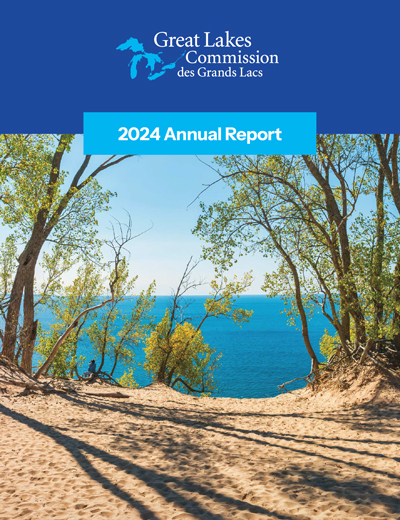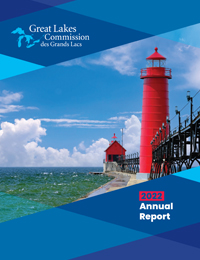2024 Great Lakes Commission Annual Report
Library
2024 Great Lakes Commission Annual Report
 The 2024 Great Lakes Commission Annual Report includes highlights and key accomplishments from the year under the leadership of Chair Mary Mertz and Executive Director Erika Jensen. The Commission’s annual reports traditionally include a summary of highlights from the year as well as financial information and commissioner rosters.
The 2024 Great Lakes Commission Annual Report includes highlights and key accomplishments from the year under the leadership of Chair Mary Mertz and Executive Director Erika Jensen. The Commission’s annual reports traditionally include a summary of highlights from the year as well as financial information and commissioner rosters.
Great Lakes Commission
https://www.glc.org/library/2024-glc-annual-report


